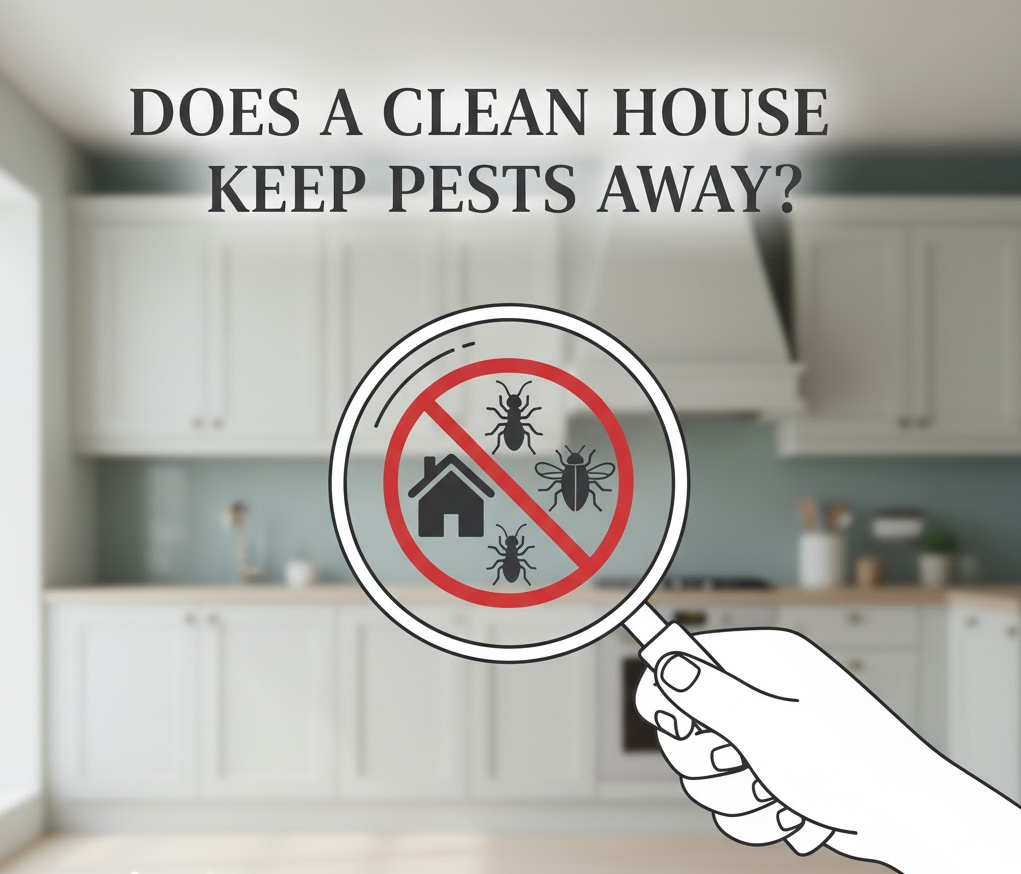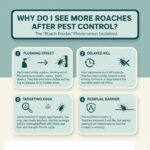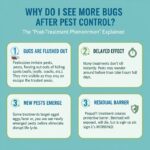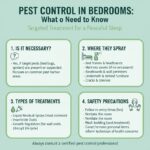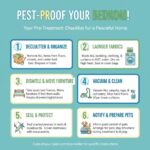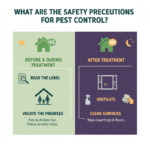Keeping your home clean is more than just about appearances. Many people wonder if a spotless home is enough to prevent pests. While cleanliness certainly plays a major role, it is not the only factor that determines whether pests will invade your space.
Understanding how pests operate can help you take the right preventive steps and reduce the chances of infestations.
Common Household Pests
Homes can attract a variety of unwanted visitors. Some of the most common pests include ants, cockroaches, spiders, rodents, flies, and termites.
These pests are usually after three things: food, water, and shelter. Even a clean house can sometimes provide opportunities if other conditions like leaks or cracks exist. Recognizing the types of pests helps you know what to target in your cleaning and prevention routine.
How a Clean House Helps to Keep Pests Away
A clean home makes it harder for pests to survive. Here are some key ways cleanliness helps:
- Remove food sources: Crumbs, leftover food, and dirty dishes attract ants, cockroaches, and rodents. Wiping surfaces and washing dishes promptly keeps them away.
- Manage garbage: Using sealed bins and disposing of trash regularly prevents pests from feeding on waste.
- Eliminate clutter: Piles of clothes, boxes, or papers give pests hiding places. Keeping spaces organized makes your home less inviting.
- Regular cleaning: Vacuuming, sweeping, and mopping remove crumbs, dust, and debris that pests rely on.
A consistent cleaning routine can significantly reduce the chances of pests finding a reason to settle in your home.
Why Cleanliness Alone Isn’t Enough to Keep Pests Away
Even the cleanest homes can experience pest problems. Pests can enter from outside, through cracks, vents, or open doors and windows.
Standing water, leaks, and damp areas attract insects and rodents regardless of how tidy the house is. Some pests like termites or carpenter ants can thrive in wood structures hidden behind walls, showing that cleaning alone won’t always prevent infestations.
For serious or persistent issues, it is often best to hire a home pest control company to ensure your home is fully protected.
Combining Cleanliness with Other Pest Control Measures
For the best results, cleaning should be part of a broader pest prevention strategy.
- Seal entry points: Close gaps around doors, windows, and vents to block access.
- Use pest deterrents: Natural repellents or professional services can keep pests at bay.
- Yard and landscaping care: Keep bushes trimmed and remove standing water to reduce outdoor pest habitats.
- Proper food storage: Airtight containers prevent pests from accessing food in pantries and cupboards.
A clean home combined with these practices creates a strong defense against pests.
Room-by-Room Cleaning Tips to Keep Pests Away
Targeted cleaning can make your pest prevention even more effective.
- Kitchen: Wipe countertops, clean under appliances, and organize the pantry.
- Bathroom: Fix leaks, clean drains, and keep surfaces dry.
- Bedroom: Declutter, wash bedding, and vacuum corners regularly.
- Living areas: Dust, vacuum, and remove debris to prevent insects and rodents from settling.
Cleaning with a plan in mind ensures every room contributes to keeping pests away.
Common Myths About Cleanliness and Pests
Many people assume a clean home automatically means a pest-free home. This isn’t always true.
- Only dirty homes get pests. Clean homes can also face problems if there are entry points or moisture issues.
- Spraying cleaners alone prevents infestations. Cleaners help, but they don’t address structural problems or pest sources.
Understanding these myths helps homeowners take realistic and effective measures.
Signs Your Home May Have a Pest Problem
Early detection is key to controlling infestations. Watch for:
- Droppings or chew marks
- Strange odors or sounds
- Visible insects or rodents
- Damage to wood, wiring, or furniture
Noticing these signs early allows you to take quick action before the problem worsens.
FAQs
Does cleaning prevent all types of pests?
No, cleaning helps reduce attractants but some pests can enter even in clean homes. Structural issues and moisture can still invite pests.
How often should I clean to avoid pests?
Daily cleaning of food areas, weekly vacuuming, and regular decluttering help keep pests away effectively.
Are there natural cleaning methods that repel pests?
Yes, using vinegar, essential oils, or baking soda in combination with regular cleaning can deter some insects naturally.
Can clutter-free homes still have pest problems?
Yes, pests can enter from outside or infest hidden areas. Cleaning reduces risk but doesn’t guarantee prevention.
Conclusion
A clean house definitely helps reduce the risk of pests, but it is not a guaranteed solution. Combining cleanliness with proper food storage, sealing entry points, and other preventive measures gives you the best chance to keep pests away.
Regular cleaning, attention to moisture, and early detection are all part of maintaining a pest-free home. Taking a comprehensive approach ensures your home stays safe, healthy, and comfortable.

